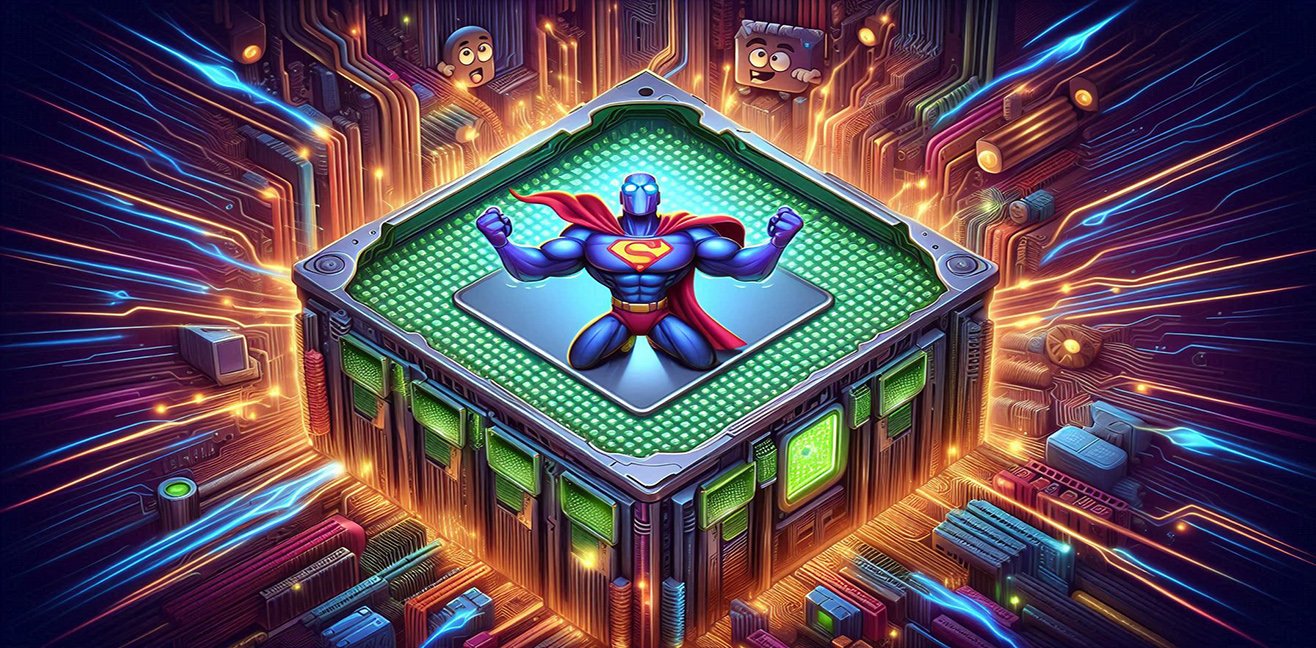Hello, tech lovers!
Today, we’re diving deep inside the computer case to talk about that tiny yet mighty hero: the PROCESSOR!
Also known as the CPU, the Central Processing Unit, or simply… the brain of your computer!
The processor is basically where your computer asks itself,
“Who am I? Where am I going? And how do I get my coffee?” ☕
Let’s grab a coffee together and take a closer look at this small but powerful piece of tech.
☕ What Is a Processor and Why Is It So Important?
As we said, the processor is the brain of your computer.
You say, “Open Google Chrome,”
and it immediately jumps into action.
You say, “Start Valorant,”
and it quickly follows your command.
You say, “Open a Photoshop project with 400 layers,”
(it might complain a bit, but it still gets it done.)
In short, whatever you do on your computer, the processor is always working behind the scenes.
It’s like the conductor of an orchestra, managing all parts in harmony.
Sometimes, it feels more like a 24/7 hard-working hero.
But usually, we only realize its value when the computer slows down! 😅
🧠 The Processor’s Secret Language: Cores and Threads
Processors used to have only a single core.
Imagine having just one brain that can only think about one thing at a time.
If you play music from the internet, you can’t really do anything else.
All your power goes to that one task.
Then engineers said one day:
“Why not put multiple brains inside a single processor?”
And so, multi-core processors were born!
Now processors can:
- Play music,
- Run 84 browser tabs at once,
- Download a game in the background,
- Apply filters in Photoshop…
All at the same time! And without complaining!
And you sit there feeling like a hacker:
“Wow, 5 programs running at once? I must be a genius!” 😎
⚡ Clock Speed: Gigahertz or Rocket Fuel?
There’s that famous topic: clock speed.
When you look at a processor, your eyes usually go straight to the “GHz” number:
“5.2 GHz? This thing must be blazing fast!”
Actually, clock speed tells how many operations the processor can perform in one second.
1 GHz = 1 billion operations per second.
So, a 5 GHz processor can handle 5 billion operations every second.
Before you even blink, it’s done with 10 billion tasks.
But the story doesn’t end with GHz.
Because a processor’s:
- Number of cores,
- Architecture,
- Cache size,
are just as important as clock speed.
So:
“Dude, I found a 7.0 GHz processor!”
“Cool, but how many cores and what architecture?”
“…Don’t know, isn’t GHz enough?”
Nope! It’s not that simple. 😄
🏆 AMD or Intel? The Eternal Debate
Here comes the legendary question:
AMD or Intel?
This is a decades-old debate in the tech world.
Like “Tea or coffee?” or “Team Fenerbahçe or Galatasaray?”, there’s no definite answer.
- AMD fans say: “Best bang for your buck, great multi-core, gaming beast!”
- Intel fans say: “Reliable, veteran brand, still king of single-core performance!”
Both sides have valid points.
You should pick the processor based on your needs.
Otherwise, buying a Ryzen just because your friend has one might bring you nothing but frustration and blue screens. 😅
🔮 The Future: Where Are Processors Going?
Processors are no longer just about speed and cores.
The new trends are:
- AI accelerators,
- Low power consumption,
- Integrated graphics,
- Autonomous data processing.
In short, processors are getting smarter, faster, and quieter every day.
While you watch videos, they might silently analyze data behind the scenes.
Get ready: Soon processors will say,
“Don’t move a muscle, I got this.” 😄
🎯 FINAL WORDS:
Everything changes and updates in the computer world, but the processor will always remain the “king.”
So choose your processor carefully:
- What will you do with it?
- What do you expect?
- What’s your budget?
Answer these, pick your processor, and take a deep breath.
You just solved one of the hardest questions in the computer world!
Now grab a coffee, go back to your computer, and look at your processor with respect:
“Glad you’re here, little giant!” ☕💻




